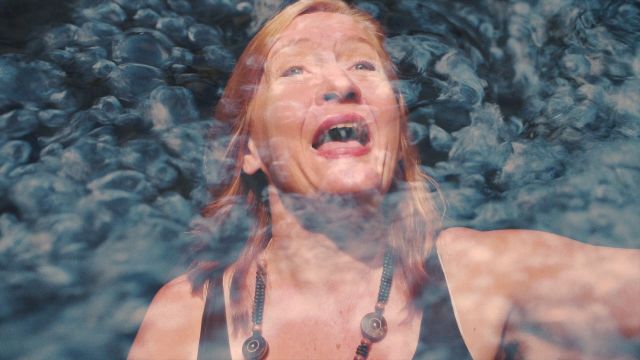Calls to 1194
Geoffrey Williams recently caught up with award-winning playwright Sandra Thibodeaux in Darwin to talk about her latest play – Calls to 1194 – for the 2021 Darwin Fringe Festival.
Is it possible to die from a broken heart? Or does ‘broken hearted’ belong strictly to the emotionally cathartic world of prose, songs, poems, and melancholic malaise?
In 2019, Sandra Thibodeaux experienced a Takotsubo event. Takotsubo cardiomyopathy or ‘Broken Heart Syndrome’ is when the heart muscle suddenly becomes ineffective – an event that occurs mostly following severe emotional or physical stress. In Ms Thibodeaux’s case, her left ventricle (the thickest of the heart’s four chambers that is responsible for pumping oxygenated blood to tissues all over the body) swelled up and stopped pumping efficiently, which triggered chaos throughout her body.
“I was very, very sick in hospital for a week. For a few days of that, I was preparing to die. Luckily, I got better. I didn’t think of writing about it. That sort of memoir writing is tricky to achieve … how to avoid self-indulgence, and so on. However, a year after my Takotsubo, we had the bushfire crisis in Australia, and I started thinking about the resonance between these two stories. We tend to take our heart for granted – it just keeps pumping on, doing its thing … we don’t even notice it. Similarly, we can take the climate for granted – it’s always going to rain, right? Until everything starts falling apart.”
Researching her recent work – A Smoke Social – took her to Palestine, Jordan, Jerusalem and Jericho. For The Age of Bones, her play about the Australian Immigration Department’s jailing of more than 60 young Indonesian boys for working on asylum seeker boats, she travelled to Nusa Tengara in eastern Indonesia with the aim of meeting some of these boys and their families. So how has the process of writing such a personal, semi-autobiographical piece different from the work that evolves from a rigorously researched, fact-based journey?
“Quite different … a lot simpler and much less research! At the time I wrote it, I was staying at my mate’s house in Bali. I had gone there specifically to write another piece on an entirely different theme. But on the first night I arrived, I started thinking about the bushfires … and then my heart … and then my childhood … and then I remembered the ’talking clock’ – and that became a key metaphor.
“When I was a child, you could find out the exact time by calling ‘1194’, and this pre-recorded voice would tell you: ‘At the third stroke …’ But what does this mean, in terms of my play? We’re running out of time. In our lives, we’re on a countdown until we die or move on to the next iteration. In the climate, we're on a countdown. The play's about seizing every minute and making it count.
Another point of difference for this new work is that Ms Thibodeaux will perform her own text, which always brings certain challenges for the performer and the writer. “We performed a reading of Calls to 1194 last year at Brown’s Mart. I was extremely nervous because it is my own story. My biggest worry was about how it would reach across to the audience – would it seem self-indulgent? Would others derive benefit from it? Most of all, I wanted the audience to take great comfort in this simple story. I didn’t have to worry. The audience were swept up in the narrative and the music. They were highly appreciative.
Calls to 1194’s music, or live soundscape, is the result of a collaboration with sound designer, composer and digital artist, Panos Couros.
“I love a live soundtrack. Ever since Netanela Mizrahi provided one for Mr Takahashi (produced in 2017), there’s been no looking back. It keeps everything organic, as the musician and the performer work as one.
“Last year, I asked Panos if he was interested in collaborating with me. He’d just purchased a Moog Subharmonicon and thought it would be perfect for the work. I don’t have the technical language to describe what it offers, but it seems to open whole worlds; the harmonics it creates drops us down onto the ocean where we float. It’s very luxurious. And, of course, with Panos at the helm, the music is rich, dynamic, and taut. He doesn’t waste a minute, either!
“I also wish, if there was a way, that the video imagery could be created live. Naina Sen has done a wonderful job, as usual, of going into the heart of things, and capturing the rhythms and textures of the natural world (and the more severe 'hospital world').
What do you hope audiences will take away from their experience of this work?
“A sense of the beauty of life, the preciousness of life. The work touches on grief, and I think we’re all grieving about what’s happening to our climate and world. I hope the work holds space for this grief and offers some healing.
“Calls to 1194 does have a mortality theme at its core, but not in a grim way. And I hope the play offers people 'a way in'. How do we learn how to die? I had to find a way very quickly. Spoiler alert: it involves a turtle! I hope that what I learned can assist others on the same path.”
Calls to 1194 for the 2021 Darwin Fringe Festival
Friday 29 and Saturday 30 October at 5.30pm
Darwin Entertainment Centre – Rehearsal Room
Visit: https://darwinfringe.org.au/event/calls-to-1194/
You can read Geoffrey Williams’ previously published feature about Sandra Thibodeaux’s A Smoke Social here:
https://www.stagewhispers.com.au/news/ghosts-farewell-smoke-social
Carol Wimmer’s review of The Age of Bones can be found here:
Subscribe to our E-Newsletter, buy our latest print edition or find a Performing Arts book at Book Nook.

